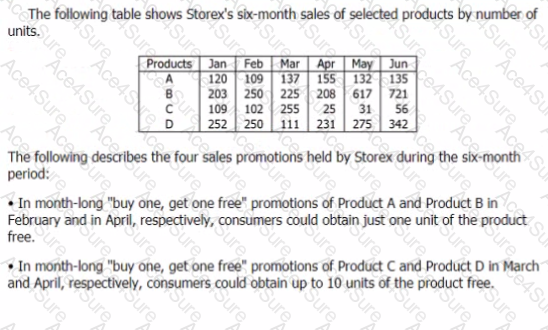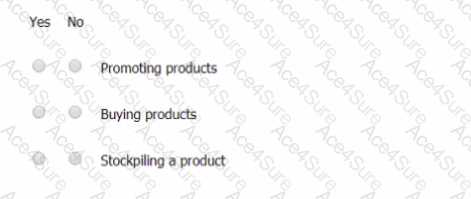Admission Tests GMAT Question Answer
Sales promotions can involve selling a product at a relatively low price or selling the product with a free (or seemingly free) unit of the product, as in "buy one, get one free" campaigns. Research shows that immediately following month-long sales promotions, a postpromotion dip may occur, i.e., sales for the following calendar month may be less than sales for the calendar month preceding the sales promotion.
To increase sales, Storex, a department store, held month-long sales campaigns to promote four of its products. A sales promotion was considered successful if unit sales of the product were at least 10% higher in each of the 2 calendar months immediately following the promotion than In the month preceding it.
Experts have offered explanations for postpromotion dip:
• Explanation I: Many consumers stockpile the product at relatively low cost during the sales promotion.
• Explanation II: "Buy one, get one free" promotions cause some consumers to undervalue the product, making them less likely to buy it following the sales promotion.
• Explanation HI: Many consumers who missed a "buy one, get one free" opportunity may, as a result, develop so-called inaction inertia, i.e., become less likely to buy the product at either the regular or even at a discount price than if the sales promotion had not occurred.

For each of the following actions, select Yes if it is mentioned in at least two of the tabs. Otherwise, select No.




